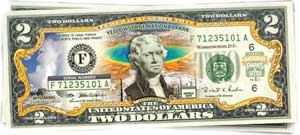This is the next step in my online conversation with Eric Benson of Inverted Garden, wherein we discuss taste, society and music from our relative perspectives as jazz and classical icons of the digital age. Eric’s posts are here. Mine are here.
Once upon a time, when Eric and I were both college students in Chicago, we trekked up from Hyde Park to the Chicago Historical Society for the inaugural Contempo Double-Bill. A Contempo Double-Bill isn’t an updated piece of Jeffersonian currency – it’s a concert that pairs contemporary classical music with jazz.

On this concert were works by George Crumb, Chen Yi, and Jonathan Harvey, along with the piano stylings of Brad Mehldau, riding high on his fame as “that jazz pianist who plays Radiohead covers.” (This was in 2004, well before every classical new music performer started doing the same.)
What I remember most about this concert is a group of four high school boys sitting right in front of us who had clearly come for the jazz portion of the evening (these were the Eric Bensons of a quarter-generation later), and that they erupted into laughter when the soprano Valdine Anderson began singing Jonathan Harvey’s “Song Offerings”.
I, obviously, was supremely annoyed, and much more so because these boys were sitting in front of us where my famed Half-Turn Glare was rendered useless. Looking back on it now though, it’s hard to blame them, because a) they were probably high, and b) they came to hear this*:
but what they got was this:
Of which the latter may be a perfectly interesting piece, but it’s hardly the former. This was a case of a classical presenting organization (and New Music, at that) carelessly assembling a double bill in an effort to draw in new audiences without in any way managing the expectations surrounding the event. What did Brad Mehldau’s music really have to do with any of the pieces on the program? Mehldau announced from the stage that he was a fan of George Crumb. So what? I like Rihanna, but people would be PISSED if they came to one of my concerts expecting to hear “Only Girl in the World”.
A stylistically heterogeneous double bill can surely work if the two musics are sharing the same conversation, which brings me to one of the best albums I’ve heard all year (thanks to Eric), Dan Tepfer‘s recent release of the Bach Goldberg Variations, in which he intersperses the Bach variations with his own improvised responses.

This isn’t Crossover – it’s just high order musicianship. What I found so interesting about this album is that Tepfer is able to manage three musical streams simultaneously: first, the thoughtful, affecting renditions of the Bach originals; second, the astonishing array of transformations that he works on each of these works; and third, the way in which he develops these improvisations into a new, autonomous set of musical pieces.
What’s more, it would be a mistake to call Tepfer’s improvisations “jazz”. [In a similar way, it’s almost silly to call the Bach originals “classical”, seeing as there existed no such category when Bach wrote them, not to mention the fact that they transcend any label we try to affix to them.]Â Yes, some of his variations are jazzier than others, but really, this is music about music, drawing from Ellington and Reich in addition to Bach.
So, EB: got any other great examples of successful jazz-classical collaborations (excepting the current co-blogging experience, of course)?